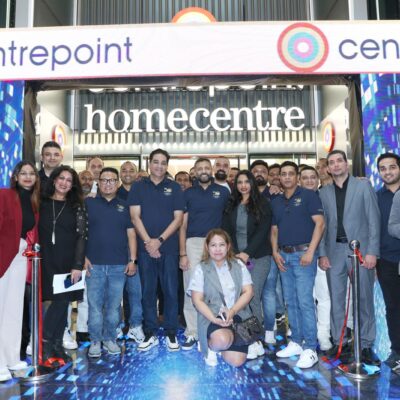You cannot study success without first understanding failure. This could be an interesting concept to unpack in our classroom environments and education system here in Kuwait. I say this because we are currently bringing to light more and more cases of people suffering from burnout, perfectionism, executive dysfunction, procrastination, and mental stress.

All these issues arise during our childhood experiences, and then in our academic journey which we then carry into adulthood. What happens in the classroom that enables students to associate their self-worth with their grades, certificates, and awards? Could it be the loaded and unrealistic expectations put on us as we went through our educational journey? Are we still at risk of falling into the same pits?
In the past, we lacked understanding of the impact of technology on our focus, ability to set goals and study. Now, with better understanding of learning disabilities, stressors, and environment we are better equipped to question the methodologies and effectiveness of our current education system. Our past and traditional approach to education, which emphasizes grades and achievements as the sole indicators of success, is clearly contributing to the rise of perfectionism and high-stress development among students. This also leads to unrealistic expectations in the workplace which then of course leads to, you guessed it, burnout.

The current system places a heavy emphasis on academic performance, leading students to associate their self-worth with their grades, certificates, and awards. As a result, students often feel immense pressure to achieve the best scores and excel in every aspect of their academic journey. This mindset creates a fear of failure and a relentless pursuit of perfection, which can be detrimental to their mental health and overall well-being.
With that said, the education system’s focus on competition and comparison exacerbates these issues. Although, healthy competition can still be promoted in learning environments, there should also be a system in place for mental wellbeing to balance out the structures. Students are constantly measured against their peers in a negative way, leading to a toxic environment where the pursuit of success is prioritized over the love of learning. This hyper-competitive atmosphere fosters anxiety, stress, and an unhealthy obsession with outperforming others. Which in turn breeds hostility among peers rather than a collaborative attitude.

The current impact of technology on our abilities to focus and set goals cannot be ignored. With the advent of smartphones and social media, students are constantly bombarded with distractions that hinder their concentration and study habits. To make matters more intense, the highlighted media we often see in social media are the perfectly curated lives of other individuals on the screen. Unconsciously, it is easy to make the comparison between our own lives and experiences with that we see plastered all over social media.
Fortunately, we now have a better understanding of learning disabilities, stressors, and the influence of the environment on student development. This knowledge empowers us to question the outdated practices and structures in our education system and advocate for necessary changes.
One crucial aspect that needs addressing is the need to shift the focus from grades and external rewards to fostering intrinsic motivation and a love for learning. Students should be encouraged to explore their interests, develop critical thinking skills, and cultivate a growth mindset that embraces failure as an opportunity for growth. By nurturing their curiosity and passion for knowledge, we can create a more engaging and fulfilling learning experience.

This approach of coaching students in the classroom to better understand themselves, make friends with failures and opportunities to learn from these experiences will make way for a more empowered generation. I would even venture to say, this promotion of self-awareness, growth mindset and development will contribute to a positive change in our working environments in the future which will foster collaboration and team work instead of hostility and divide.
We need to create a supportive and inclusive environment in our classrooms. Teachers and educators should be equipped with coaching tools and training to identify and address mental health issues, learning disabilities, and executive dysfunction among students. Implementing strategies that promote emotional well-being, stress management, and effective study techniques can go a long way in reducing the negative impacts of the education system on students’ mental health.

When we start to understand that what is going on in the classrooms need to be re-evaluated, we can start making the necessary shifts. Students should be taught essential skills such as problem-solving, critical thinking, communication, and collaboration, which are equally important for their personal and professional development. By preparing them for the real world and equipping them with transferable skills, we can ensure that their education is not solely focused on academic achievements. Now, with the rise of AI technology, we are starting to truly value and see the importance of personal development and emotional intelligence. These factors play a significant role in our threshold for stress, disappointments and even our attitudes towards failure.
Failure has often been linked to a finality; we think that if we fail something then we are done for. A lot of shame comes with that, and when students experience these complex challenges, it is tough for them to regulate and understand that they can benefit and learn from these experiences instead of isolating into chronic guilt.
I would like to see a shift in the focus of the education system, where we appreciate the value of the individual and how we can nurture them into assets to society. This requires further study into the curriculums put in place, its relevance to the current times and how incorporating these new systems and technology can make a positive impact.
By shifting the focus from external rewards to intrinsic motivation, creating supportive learning environments, and incorporating life skills into the curriculum, we can provide students with a well-rounded education that prepares them for a successful and fulfilling future. It is time to prioritize the well-being and holistic development of our students, shaping them into resilient individuals who are not defined by grades but by their ability to embrace failure, learn from it, and thrive.








